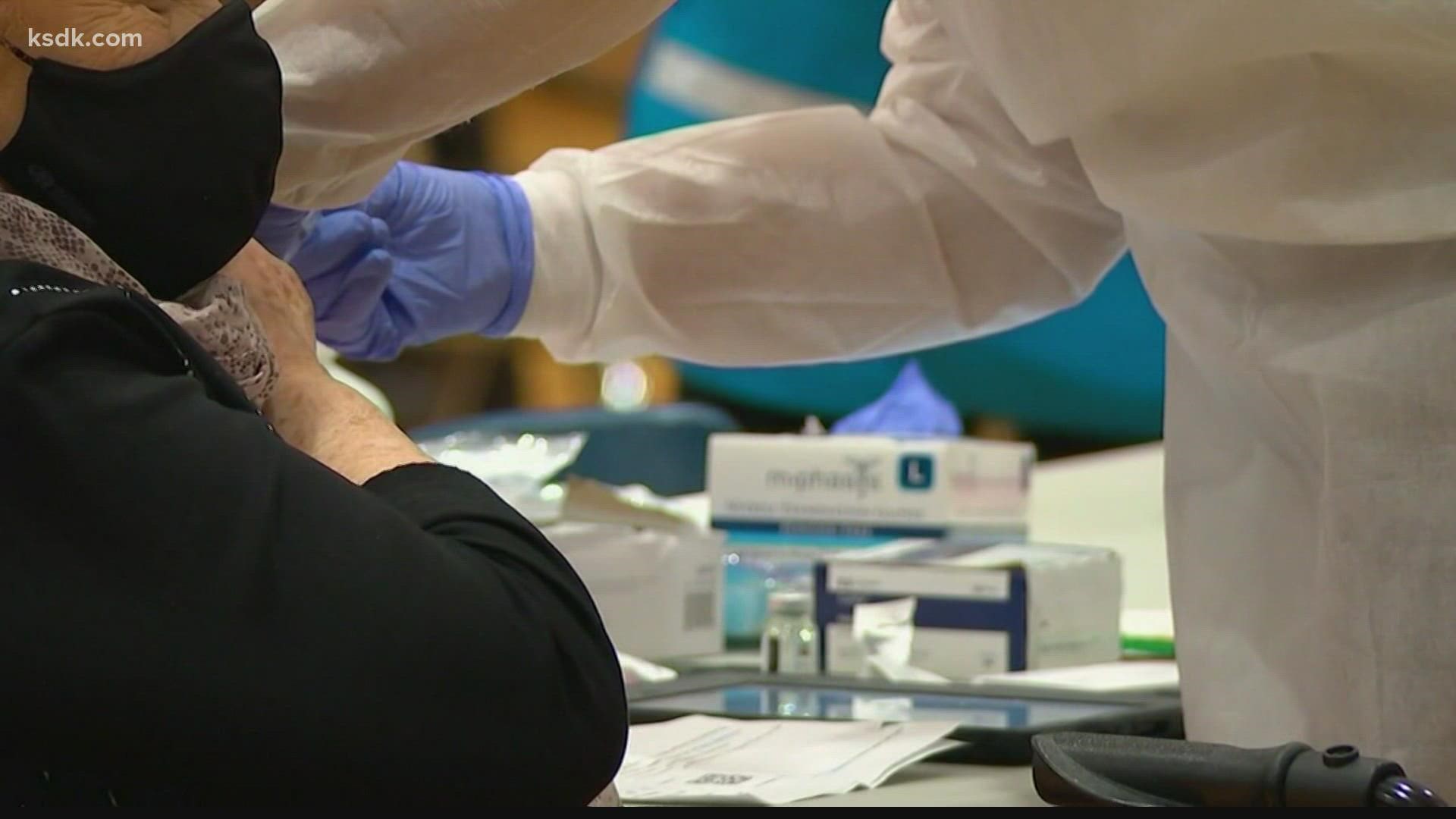ST. LOUIS — If you're looking for a sign of how the Continis are handling the pandemic— try their front door.
“I wanted to say welcome. And I said, ‘well-no, wait, what? Are you vaccinated?' Then we'll talk,” said Sharon Contini of her homemade alternative welcome sign, hanging on the door to their Oakville home. “We err on the safety side.”
For the retired teacher and her husband John, an actor and director, that meant getting COVID-19 shots “as soon as they were available.” And for John, that also meant getting a third dose just to feel a little safer resuming some activities.
“I’m a transplant patient, so it's very important for me because my immune system is compromised,” he said. “I have to confess, I have felt like a hermit for the last year and a half because I've been living in this house and rarely going out--occasionally to the store, but always masking up. I don’t want to take any chances.”
Currently the FDA has authorized and CDC recommends people with weakened immune systems, like transplant recipients, get a third dose of the MRNA vaccines at least a month after their second.
“My sense is that after the third dose, people will probably have pretty robust immunity for some time. Whether we would need another booster downstream just on the basis of a decline in an immunity isn't clear,” said Dr. Clay Dunagan, BJC infectious disease doctor and leader of the St. Louis Metropolitan Pandemic Task Force.
It’s also not yet clear when or if third shots will be available for everyone else.
Monday a group of international scientists published a journal article concluding most people don't need one yet. The FDA is set to hear data Friday. If approved, the White house is pushing for third shots to be made available next week, starting with Pfizer.
“The timing that we've seen has been at least eight months after the first dose or the first set of immunizations have been completed [for those without immune deficiencies]. Whether that's the exact number that will come out, it is unclear,” he said.
Medical officials are still studying long-term efficacy of the single-dose Johnson and Johnson shot and are expected to issue recommendations for those who received that shot, too.
Dr. Dunagan says it appears most people seem to experience similar side effects after the third dose as they did following their first or second doses.
For John, that includes a renewed feeling of hope.
“I feel more protected. I've had that booster shot now and I feel like, of course, I’m not immortal, nobody is, but there there's a chance, you know?” He said. “There's a better chance.”

